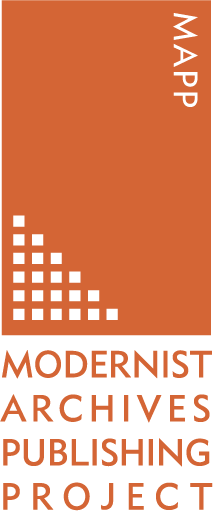By Samantha Morrish
Working on MAPP has been an incredibly enriching experience. It provided me with the opportunity to research and write a mini-biography of Ruth Manning-Sanders, whose poetry was published by the Hogarth Press. Over the period of a month, I searched various sources including diaries, letters, articles, reviews and archival material. I then collated my findings to draw together the story of the writer’s fascinating life. After living in Manning-Sanders’ world through historical sources, I was eager to share my findings with others by documenting her life in a written piece. It was interesting to discover how many of her experiences influenced her work, for example, she took holidays to the Scottish Highlands as a child where she listened to ancient folk lore tales. These made a great impression on the fantastical element of her work. Circus stories feature throughout the oeuvre and it was enthralling to learn that Manning-Sanders herself travelled with the circus for two years. These discoveries brought home to me how biography can provide us with a greater understanding of the texts we read and the time in which they were created.
I studied Manning-Sanders’ life as a whole but mainly concentrated on her relationship with the Hogarth Press. Working on MAPP has reinforced to me the amount of research a project of this nature requires. Manning-Sanders’ background is just one part of the entire Hogarth Press story and it is has been brilliant to contribute to such a venture. I enjoyed hearing about my colleagues’ discoveries and it is exciting to realise how piecing everyone’s work together will lead to a clearer picture of an important time in culture.
I have developed various skills throughout the process, from receiving the brief to reviewing my work with the project leaders. I was given an estimated amount of time to complete the biography within, making me note my hours. I gave myself personal targets to achieve different parts of my task within certain timeframes and continue to employ this more disciplined way of working to my studies. It has been fantastic to be involved with such an innovative project. Not only have I enjoyed contributing original research to MAPP but have, also, gained a compelling insight into digital humanities and the new possibilities open to the sharing of literary history.
Samantha Morrish is now a PhD student at the Univeristy of Reading, working on the Collections-Based Research Doctoral Training Programme.
https://www.reading.ac.uk/collectionsresearch/



